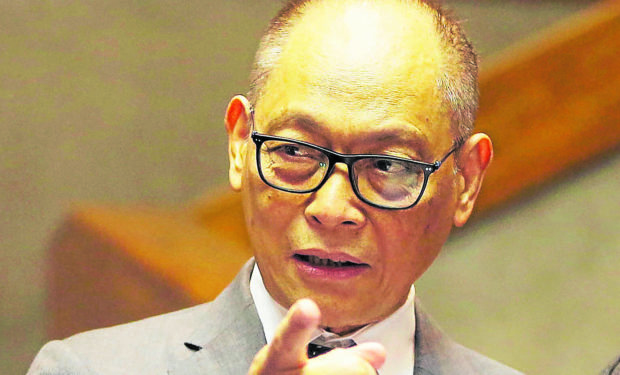MANILA, Philippines—Philippine monetary policy will be determined by empirical data and not social media pundits or even market analysts, the head of the central bank said, replying to questions on whether it’s time to raise interest rates to combat high inflation.
In a mobile phone message to reporters, Bangko Sentral ng Pilipinas (BSP) Governor Benjamin Diokno again reiterated his preference for keeping the borrowing rates in the country at record lows in a bid to restart growth in the pandemic-ravaged economy.
“Based on the evidence at the time of its decision, the Monetary Board will decide on the appropriate timing of its policy change,” he said. “It won’t be influenced by opinion makers, market analysts or Twitter.”
Many market watchers and economists in the Philippines have social media accounts which they use to air views, prognoses and policy recommendations. The prevailing high inflation regime is one of their constant topics with some criticizing the central bank’s ultra loose monetary policy while some supporting it.
Diokno said, however, that the harm of tightening monetary policy too soon exceeds the harm of moving too late because the Philippine economy is at a “nascent” state of recovery.
In his statement, the central bank chief acknowledged the problem of steadily rising prices which is being experienced by many countries around the world as demand recovers in the second year of the pandemic.
He noted that central bankers globally are divided on whether the inflation now being experienced is merely transitory or part of a longer term problem.
“But based on available evidence I will side with ‘Team Transitory’,” he said, adding that BSP staff forecasts that average inflation this year will be about 4.5 percent, slightly above the upper range of the 2 to 4 percent target. Inflation is then expected to settle at an average of 3.3 percent in 2022 and 3.2 percent in 2023.
At present, Diokno said there is no pressure on the demand side, like increases in wages, transport costs and housing. There is also “sufficient slack” in the economy and real estate prices are steady with a downward bias.
“What’s the implication on monetary policy?” he said. “Since the inflation pressures are coming from the supply side, there appears to be no justification for monetary intervention. For example, would an interest rate hike bring about higher world crude supply? Of course not.”
TSB
